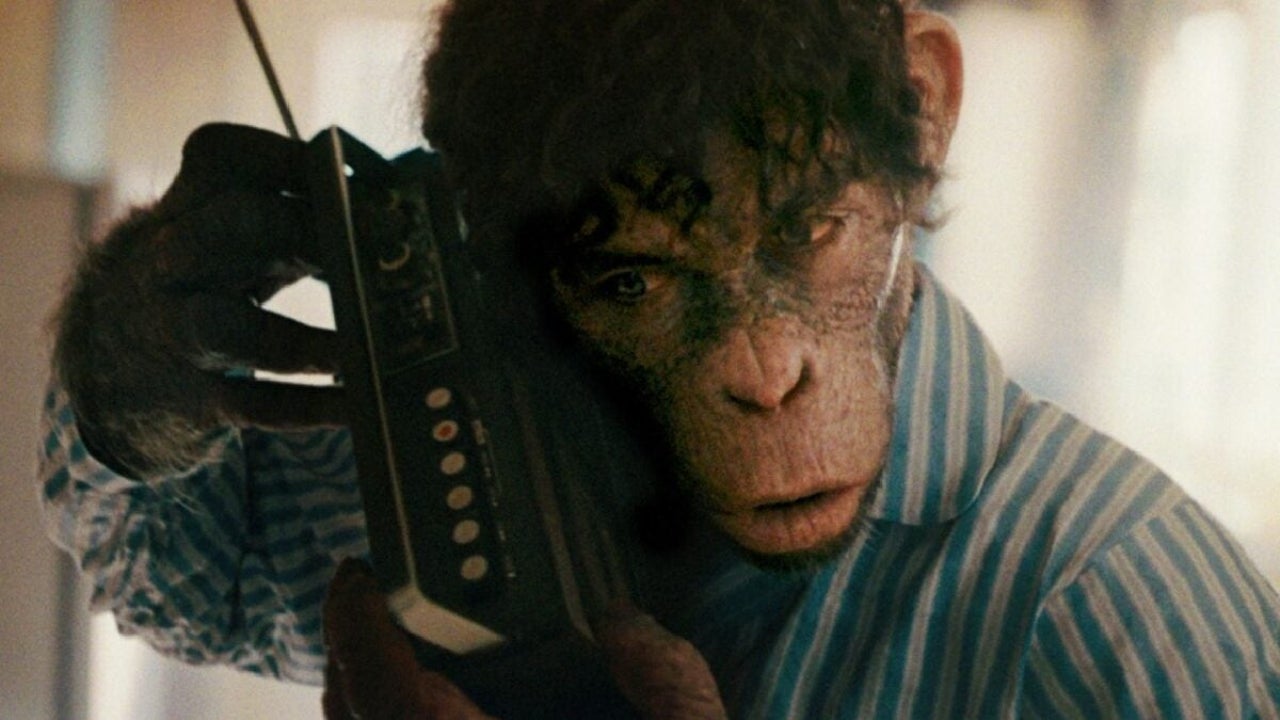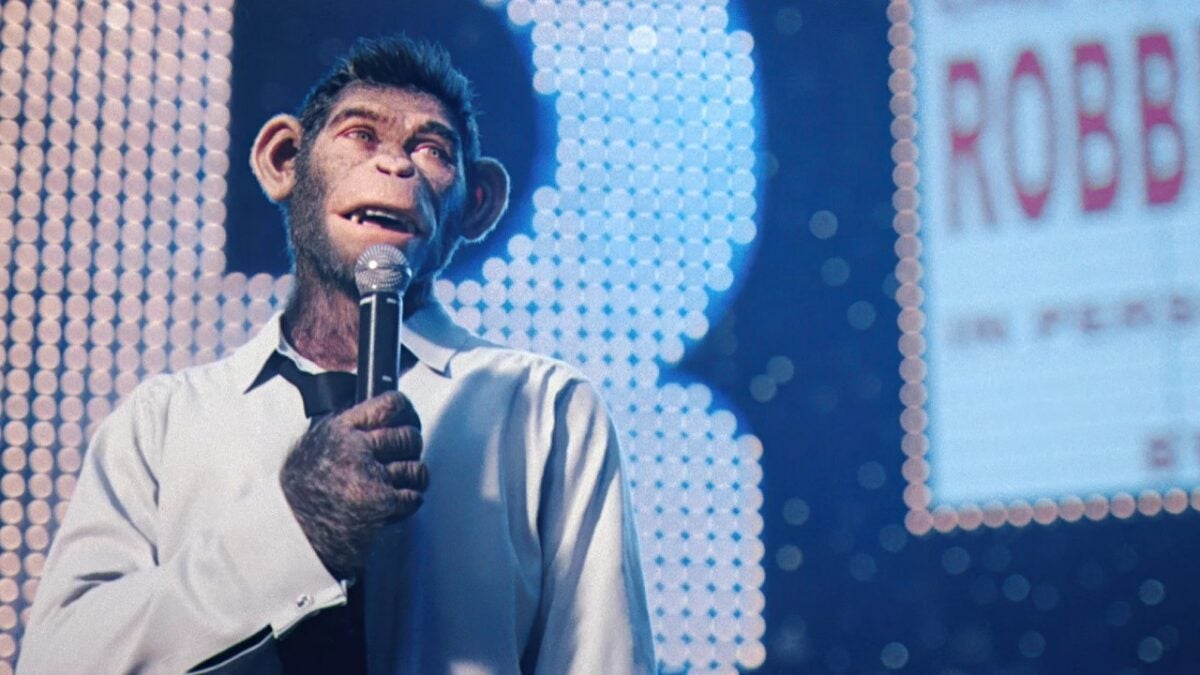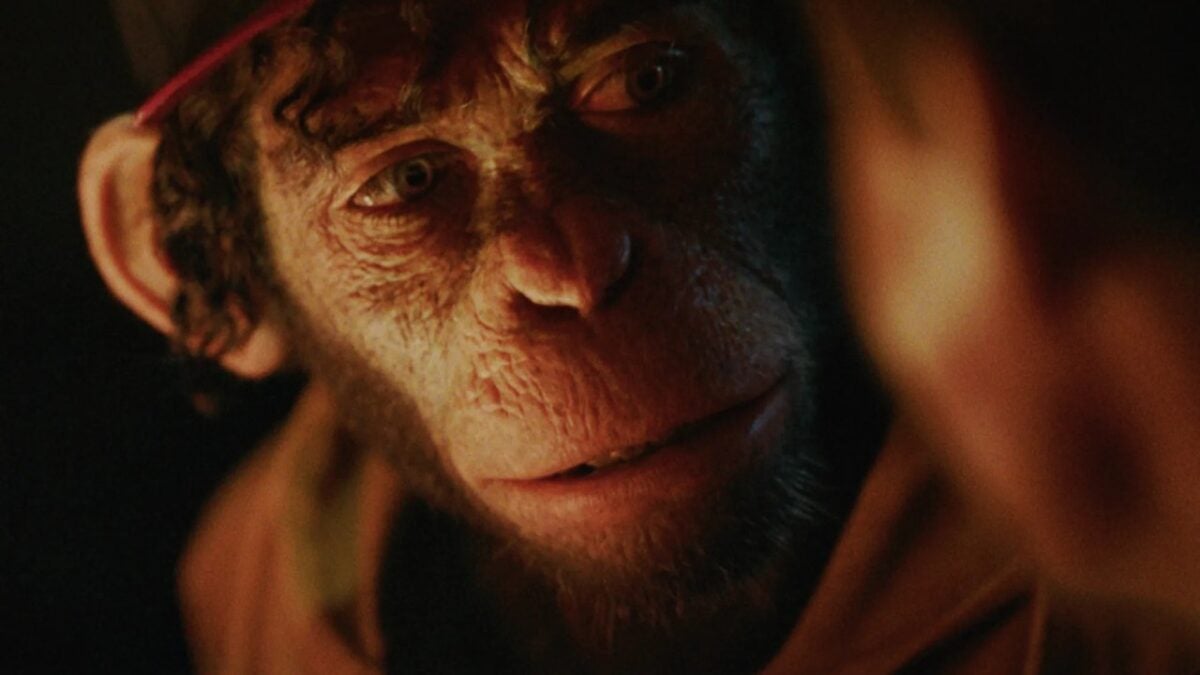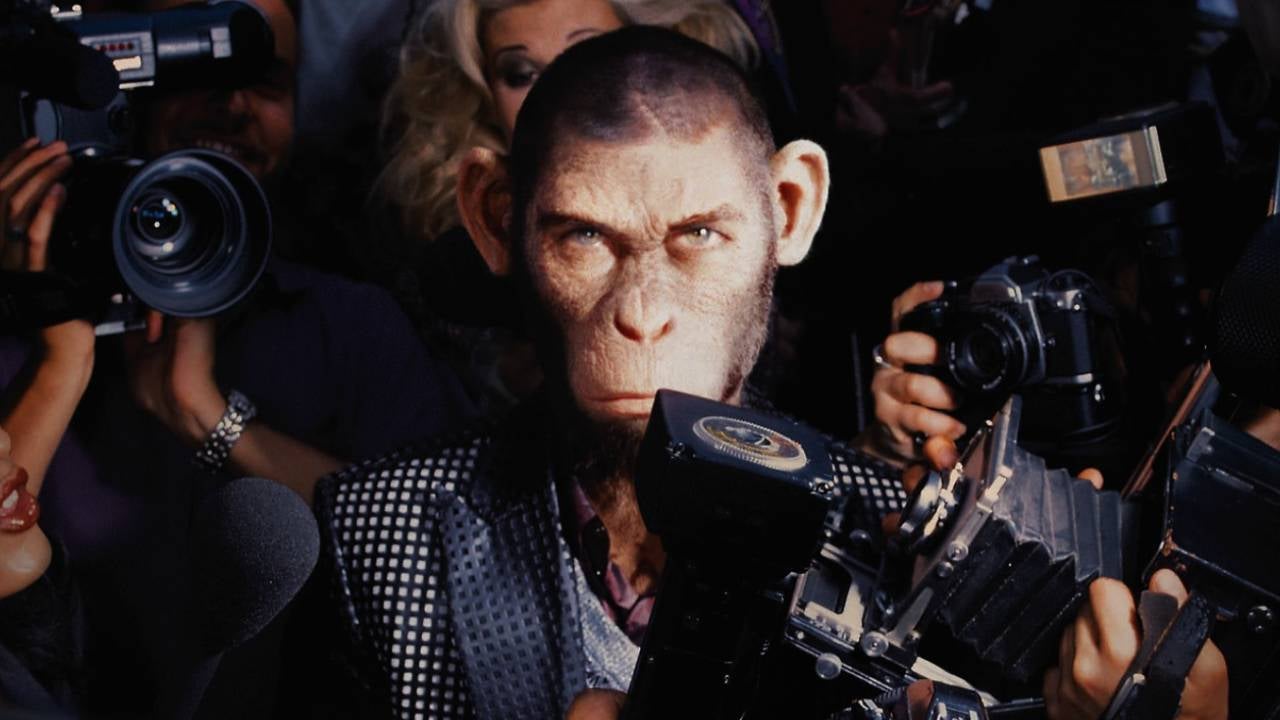Better Man: the best musical biopic is the one that no one has seen
It has generated a lot

- May 6, 2025
- Updated: May 6, 2025 at 7:07 AM

Since Bryan Singer decided to make a biopic about Queen that, oh surprise, earned Rami Malek an Oscar for his role as Freddie Mercury, we have entered an era of Hollywood that is almost darker than that of superheroes: the era of musical biopics. Although there have been interesting exceptions, like Elvis, more and more films about singers are being released that do not necessarily have a great story —sorry Bob Dylan, but A Complete Unknown tells NOTHING—.
However, amidst all this whirlwind of bad movies, there is one that has stood out for having a quality far superior to the rest: Better Man. Directed by Michael Gracey (The Greatest Showman) and released on December 26, 2024, the film not only sensitively captures the rise, fall, and redemption of Robbie Williams, but also dares to play with the rules of the genre in an innovative and fascinating way. And, well, additionally, the protagonist is a monkey, which in itself is a reason to watch the film.
But all these crazy ideas, this incredible visual formalism, and this exciting story have been of no use. Whether it’s because people have become saturated with so many musical biopics or because they don’t really like watching a monkey sing, the movie has been an absolute commercial disaster. It has only grossed 22 million dollars from an investment of 110. And it hasn’t even been noticed in the awards.
Why Better Man is better than Bohemian Rhapsody (and all that jazz)
If this article serves any purpose, let it be to at least generate some curiosity about a movie that deserved much more than what it has achieved. Better Man should have been a full-blown box office hit, and I am sure that if more people had seen it, word of mouth would have taken effect and we wouldn’t be talking about failure now.
Unlike other sugary biopics (has it become clear that I can’t stand Bohemian Rhapsody?), Better Man does not seek to sanctify the artist. It also does not fall into the sugary melodrama or the simplistic chronology that turns real life into a succession of iconic moments designed for fans. The film opts for a more introspective and surreal approach, in which the monkey Robbie Williams reviews his life as if it were a theatrical play.

The direction of Gracey is impressive. His characteristic lush visual style manages to balance the spectacularity of the concerts with moments of solitude, addiction, and vulnerability. And it is that, thanks to breaking the barrier of disbelief from the very first moment, the film allows for moments of fantasy and abstraction, diving into the soul of the character, into his chronic insecurity and his struggle with mental health. Robbie appears as an idol with feet of clay, someone trapped in his own fame, constantly confronted with the absent figure of his father, the legacy of Take That, and the pressure to constantly reinvent himself.
But here we are not watching A Star is Born. We do not wallow in its crap, but rather we simply face a complex and addictive character. Better Man completely avoids moralism. There are no grand speeches about the price of fame or forced redemptions. The film prefers to show rather than explain, with an incredible narrative and musical numbers much better than most biopics of this kind. In short, instead of making a simple filmed playlist, Better Man makes the music part of the emotional discourse of the story.

The blame is on the United States
But why, if it is such a good movie, has it failed so spectacularly? Well, beyond the fact that we should stop the discourse that a great box office is synonymous with a great movie (ahem Minecraft ahem), the most obvious excuse for the failure is the limited penetration of Robbie Williams in the U.S. market.
While Freddie Mercury, Elton John, or Elvis are global icons, Robbie remains, essentially, a British superstar. His charisma, his sharp humor, his combination of arrogance and insecurity —so characteristic of 90s English pop— do not connect with the North American narrative of success and self-improvement. In the United States, Robbie Williams is little more than “that guy who sang Angels.”

This has caused distributors to hesitate in launching the film on a large scale outside the United Kingdom. In fact, Better Man was released very limited in some countries and has not yet reached the major streaming platforms, which greatly hinders its visibility. The biopic has become, so to speak, an almost instant cult product, valued by fans but unknown to the general public.
But, paradoxically, this invisibility also gives Better Man a special aura. It doesn’t have to answer to the global market or submit to the more commercial conventions of the genre. Despite the evident box office failure, it is a film that has been able to be whatever it wanted. At a time when all biopics seem designed to win awards and make fans excited over trivialities, Better Man presents itself as a free, playful work, and ultimately, a MOVIE in capital letters.
Cultural journalist specialized in film, series, comics, video games, and everything your parents tried to keep you away from during your childhood. Also an aspiring film director, screenwriter, and professional troublemaker.
Latest from Juan Carlos Saloz
- 25 years of Gladiator: why it was so important at the time… and why the sequel has not pleased anyone
- The 5 best episodes of Love, Death & Robots to prepare for the fourth season
- The dark Korean series that is taking off on Netflix and has nothing to envy from Squid Game
- The 5 best Thunderbolts comics to prepare for their premiere
You may also like

A cult saga from Mega Drive returns 33 years later with a double remaster and a sequel
Read more

Ghost of Yotei is even better than Ghost of Tsushima, according to a former Sony executive
Read more

Microsoft announces the closure of Skype
Read more

The delay of GTA VI could brutally impact the industry, according to a famous analyst
Read more

The creator of Katamari Damacy has a new game and is eager for us to see its ending
Read more

Imagine playing a game like League of Legends where all the characters were ships, well now you can!
Read more